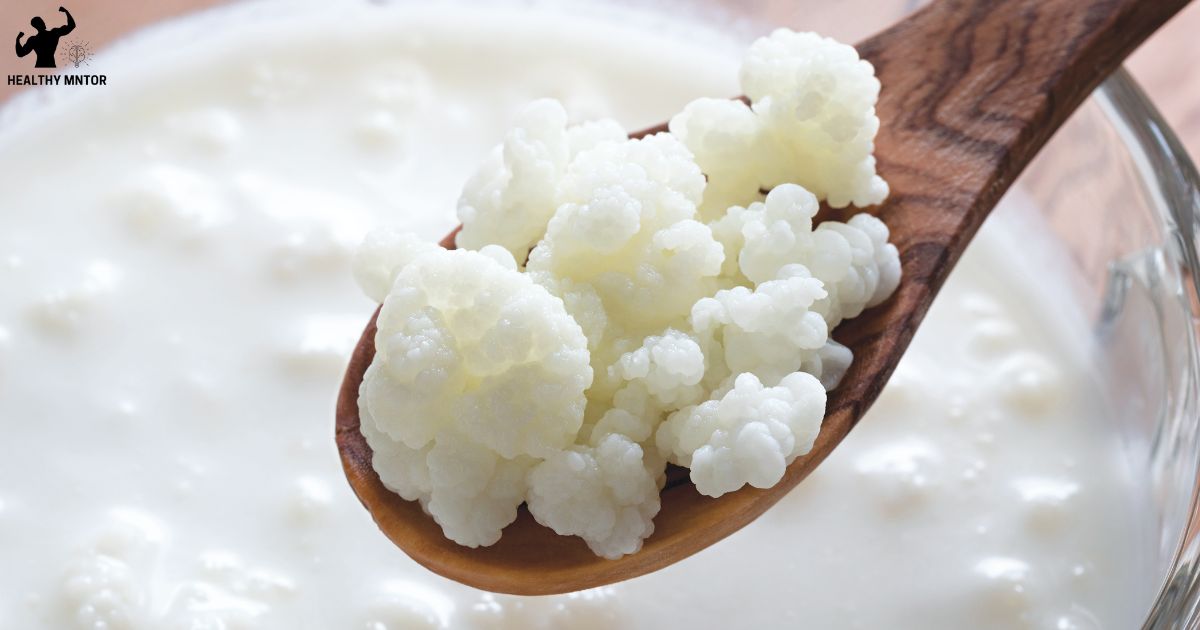Did you know that certain foods contain active microorganisms that can actually support your health? According to research, incorporating these foods into your diet can have numerous benefits, such as improved digestion, enhanced immune system function, and increased nutrient absorption. From yogurt and kombucha to sauerkraut and tempeh, these fermented foods are not only delicious but also packed with beneficial bacteria. In this article, we will explore which foods contain these active microorganisms and how they can contribute to your overall well-being.
Key Takeaways
- Yogurt and kefir are probiotic-rich dairy products that contain active microorganisms beneficial for supporting overall health.
- Kombucha is a fermented beverage that contains active microorganisms and is a rich source of probiotics.
- Sauerkraut and pickles are fermented foods that contain beneficial bacteria and probiotics, which support digestive health and boost the immune system.
- Kimchi and miso are fermented foods that are rich in probiotics, vitamins, and minerals, promoting gut health and overall well-being.
Yogurt
Yogurt is a probiotic-rich dairy product that contains active microorganisms beneficial for supporting overall health. These active microorganisms, known as probiotics, help to maintain a healthy balance of bacteria in the gut. Research has shown that consuming yogurt regularly can have numerous health benefits. Firstly, yogurt has been found to improve digestion and promote better gut health. The live cultures present in yogurt aid in the breakdown of lactose, making it easier for lactose-intolerant individuals to digest.
Yogurt has been associated with a strengthened immune system, as the probiotics in yogurt can help to enhance the body’s natural defense mechanisms. Moreover, yogurt is a good source of protein, calcium, and other essential nutrients, making it a nutritious addition to a balanced diet. Incorporating yogurt into your diet can be an excellent way to support your overall health and well-being.
Kombucha
Kombucha is a fermented beverage that contains active microorganisms beneficial for supporting overall health. It is made by fermenting sweetened tea with a symbiotic culture of bacteria and yeast (SCOBY). The fermentation process produces organic acids, vitamins, and enzymes, making kombucha a rich source of probiotics. Probiotics are live bacteria and yeasts that are good for your digestive system.
They help to restore the natural balance of bacteria in your gut, which can be disrupted by factors such as stress, poor diet, or antibiotics. Consuming kombucha regularly can contribute to a healthy gut flora and support digestion. Additionally, some studies suggest that kombucha may have antimicrobial and antioxidant properties, which could provide further health benefits. However, it is important to note that more research is needed to fully understand the potential health effects of kombucha.
Sauerkraut
What other fermented food can provide active microorganisms that support overall health? Sauerkraut, a traditional German dish made from fermented cabbage, is another excellent source of beneficial bacteria. During the fermentation process, lactic acid bacteria convert the natural sugars in cabbage into lactic acid, creating an acidic environment that inhibits the growth of harmful bacteria prevention mean in relation to health.
This process also produces a range of health-promoting compounds, such as vitamins, enzymes, and probiotics. The probiotics in sauerkraut, including Lactobacillus and Leuconostoc species, have been shown to support digestive health, boost the immune system, and reduce inflammation. Incorporating sauerkraut into your diet can contribute to a healthy gut microbiome and overall well-being. Now, let’s move on to another popular fermented food: kimchi.
Kimchi
Another popular fermented food that contains active microorganisms beneficial to health is kimchi. Kimchi is a traditional Korean dish made from fermented vegetables, such as cabbage, radishes, and cucumbers, along with various seasonings. It is known for its distinct spicy and tangy flavor. Kimchi is rich in lactic acid bacteria, including species like Lactobacillus kimchii, which are known to promote gut health and boost the immune system. These beneficial bacteria help in the digestion and absorption of nutrients, improve bowel movements, and reduce inflammation in the gut.
Kimchi is a good source of vitamins, minerals, and antioxidants, which further contribute to its health benefits. Incorporating kimchi into your diet can help support a healthy gut and overall well-being.
Miso
Moving on to the next fermented food that contains active microorganisms beneficial to health, we come to miso. Miso is a traditional Japanese seasoning made by fermenting soybeans with salt and a specific fungus called Aspergillus oryzae. This fermentation process creates a paste with a rich, savory flavor and a unique aroma.
Miso is not only a versatile ingredient in cooking but also offers several health benefits. It is rich in probiotics, which are beneficial bacteria that support gut health and boost the immune system. Additionally, miso contains antioxidants, vitamins, and minerals that promote overall well-being.
Studies suggest that consuming miso may help reduce the risk of certain chronic diseases, such as heart disease and certain types of cancer. It may also improve digestion and alleviate symptoms of menopause.
To incorporate miso into your diet, you can add it to soups, marinades, dressings, and even desserts. However, it’s important to note that miso is high in sodium, so moderation is key.
Tempeh
Tempeh, a fermented soybean product, contains active microorganisms that can support your health. These microorganisms, including beneficial bacteria and fungi, play a significant role in improving digestion and nutrient absorption. The fermentation process involved in making tempeh helps break down the complex carbohydrates and proteins present in soybeans, making them more easily digestible.
Tempeh is a great source of protein, dietary fiber, vitamins, and minerals. It is also low in saturated fat and cholesterol, making it a healthy alternative to meat-based protein sources. Incorporating tempeh into your diet may promote gut health, enhance immune function, and reduce the risk of chronic diseases such as heart disease and diabetes. So, why not give tempeh a try and enjoy its health benefits while exploring its versatile and delicious culinary uses?
Kefir
One food that contains active microorganisms that can support your health is kefir. Kefir is a fermented milk drink that is made by adding kefir grains to milk. These kefir grains are a combination of bacteria and yeast that ferment the lactose in the milk, creating a tangy and slightly bubbly beverage. Kefir is known for its probiotic properties, as it contains various strains of beneficial bacteria and yeast.
These microorganisms can help improve digestion, boost the immune system, and promote overall gut health. Additionally, kefir is a good source of protein, calcium, and vitamins B12 and K2. Incorporating kefir into your diet can be a delicious way to support your health and well-being. Now, let’s move on to the next food on our list: pickles.
Pickles
Continuing the exploration of foods containing active microorganisms, pickles have emerged as another notable source of beneficial bacteria. Pickles are cucumbers that have been fermented in a brine solution containing salt and water. During the fermentation process, lactic acid bacteria, such as Lactobacillus plantarum and Lactobacillus brevis, convert the naturally occurring sugars in cucumbers into lactic acid. This process not only gives pickles their characteristic tangy flavor but also creates an environment where beneficial bacteria can thrive.
Consuming pickles can contribute to a healthy gut microbiome. The lactic acid bacteria found in pickles are known to have probiotic properties, meaning they can promote the growth of beneficial bacteria in the gut. These bacteria can help improve digestion, enhance nutrient absorption, and support overall gut health. Additionally, pickles are a good source of dietary fiber, which acts as a prebiotic, providing nourishment for the beneficial bacteria in the gut.
However, it is important to note that not all pickles contain live, active bacteria. Many commercially available pickles are pasteurized, which kills off the beneficial microorganisms. To reap the full benefits, look for pickles that are labeled as “fermented” or “probiotic” and are made using traditional methods that preserve the live bacteria. Alternatively, consider making your own pickles at home using fermentation techniques to ensure maximum probiotic content.
Frequently Asked Questions
Can Consuming Active Microorganisms in These Foods Help Improve Digestion and Gut Health?
Consuming active microorganisms in certain foods has been shown to improve digestion and gut health. These beneficial microorganisms, such as probiotics, can support a healthy gut microbiome and promote better nutrient absorption, immune function, and overall well-being.
Are All Types of Yogurt Equally Beneficial in Terms of Active Microorganisms?
Not all types of yogurt are equally beneficial in terms of active microorganisms. The specific strains and quantities of live cultures can vary. It is important to read labels and choose yogurts that contain probiotics known to support gut health.
What Are the Potential Health Benefits of Consuming Kombucha Regularly?
Consuming kombucha regularly may have potential health benefits such as improved digestion, enhanced immune function, and increased energy levels. It contains active microorganisms that support gut health and may contribute to overall well-being.
How Long Does Sauerkraut Need to Ferment in Order to Develop Active Microorganisms?
The fermentation process of sauerkraut typically takes around 1 to 6 weeks to develop active microorganisms. This timeframe allows for the growth of beneficial bacteria that can support gut health and contribute to overall well-being.
Can Pickles Made With Vinegar Also Contain Active Microorganisms, or Do They Need to Be Fermented in Brine?
While pickles made with vinegar do not contain active microorganisms, pickles fermented in brine do. For example, lacto-fermented pickles undergo a natural fermentation process, leading to the growth of beneficial bacteria that can support gut health.
Conclusion
In conclusion, incorporating foods that contain active microorganisms, such as yogurt, kombucha, sauerkraut, kimchi, miso, tempeh, kefir, and pickles, can support your health. These foods provide a practical and evidence-based approach to improving gut health and overall well-being. By regularly consuming these probiotic-rich foods, you can enhance your digestion, boost your immune system, and promote a healthy balance of microorganisms in your body. So, why not add these delicious and nutritious options to your diet and experience the benefits for yourself?







